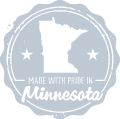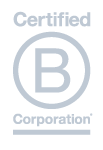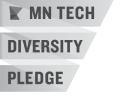Across sectors and in nearly every field, conferences are a big deal. Once a year, hundreds or thousands of professionals will gather to make connections, participate in workshops, and get inspired to do better work and make a bigger impact in their profession. Conferences are an opportunity to meet your peers in person, learn from experts, learn about new vendors in the exhibit hall, and even position yourself as an expert by applying to speak.
Here are some tips for getting the most out of your conference experience:
Decide which conference(s) to go to.
There are probably going to be dozens of conferences relevant to your job this year. You definitely can’t make it to all of them, and you may have a limited professional development budget, so make sure you are carefully researching which conferences would be the best to attend. Ask your peers which conferences they would recommend, and look up sessions from previous conferences to see if they match up with your expectations. Usually conferences are scheduled quite far in advance, so you have plenty of time to decide.
Convince your boss.
Conference admission can cost hundreds of dollars, and if you need to travel that cost goes way up. Because of budget limitations, and the day-to-day work you will be missing, your boss might be hesitant to shell out for your ticket unless they are sure they will get a return on their investment. You need to make a strong case for your attendance! Before you broach the subject with your boss, prepare a list of some of the reasons that attending this conference would be beneficial to you and your employer. Networking, learning, and content generation are just a few of these benefits. Write a compelling sentence about each to show your boss that you want to attend for compelling professional reasons, not just to get away from your desk for the day!
Plan and review.
Go over the conference agenda and decide which sessions you’d like to attend. If a few members of your team are going, awesome! You can divide up the sessions so there’s not too much overlap and at least one person gets to go to each relevant session. This way you maximize what your team gets out of the conference. Make sure you get together afterward and discuss what you learned, and share those insights with the larger team as well.
Create your elevator speech.
When people you meet ask you about your work, have a short, concise statement ready to go. One memorable sentence or paragraph about yourself and the organization you work for is far preferable to a long, disjointed ramble or the deer-in-the-headlights look. Nonprofit consultant Joan Garry has a great guide to introducing your organization, and the University of California, Santa Barbara has a step-by-step guide to writing your personal elevator pitch. Practice on your way to the conference. It should flow easily and not sound robotic. And don’t downplay yourself by saying you’re “just an assistant” or something. Your work is important! Confidence is key. Check out our past blog on improving your self-confidence.
Take note that you should take notes.
Your boss will probably want you to share what you learned at the conference with your colleagues, as well as your organization’s audience. Take thorough notes at the conference and type up a quick summary at the end of the day while the information is still fresh in your memory. And think of some highlights to share at your next staff meeting!
Pack a bag.
Even if it’s a one-day, local conference that doesn’t require any travel, you will want to bring a few things. Here are a few ideas:
- Business cards. Lots and lots of business cards. And have a designated place to put the ones you collect from people you meet, so they’re not spilling out of your pockets or making a mess of your purse.
- Laptop and/or phone charger in case all that tweeting and note-taking drains your battery.
- Refillable water bottle. Please don’t rely on caffeine for all your liquid intake.
- A snack! Have you ever regretted bringing a snack somewhere?
- Hand sanitizer. You’re going to be shaking some hands.
- Mints or gum. Bad breath does not make a good first impression.
Tweet your two cents.
During the conference, follow the hashtag (which was probably shared well ahead of time) and use it to tweet about the things you are learning and how great it is to meet so many of your peers, etc. Pics are always popular!
Make the most of your time.
Don’t be afraid to leave a session. Sometimes sessions aren’t what they sold themselves as in the session description. If you can tell in the first 10 minutes or so that the session won’t be a fit, don’t be afraid to leave and find a better session that is going to be of more value to you. Have back-up sessions in mind in case this happens, or use that time for networking or checking in on emails at work.
Follow up.
You’ve done some networking and collected a bunch of business cards. Awesome! It doesn’t stop there, though. Connect with these people on Linkedin and Twitter, send them an email, put their info in your database – a pile of business cards isn’t going to do you any good if you don’t follow up.
Whether you are a veteran conference-goer in need of a refresher or a first-timer who needs a little guidance, we hope these tips are helpful to you. thedatabank will be exhibiting at the MCN Tech Conference on February 21, 2017, so be sure to look for us in the vendor hall. We look forward to seeing you!


 thedatabank, gbc is technology for change, and we walk the talk.
thedatabank, gbc is technology for change, and we walk the talk. 

